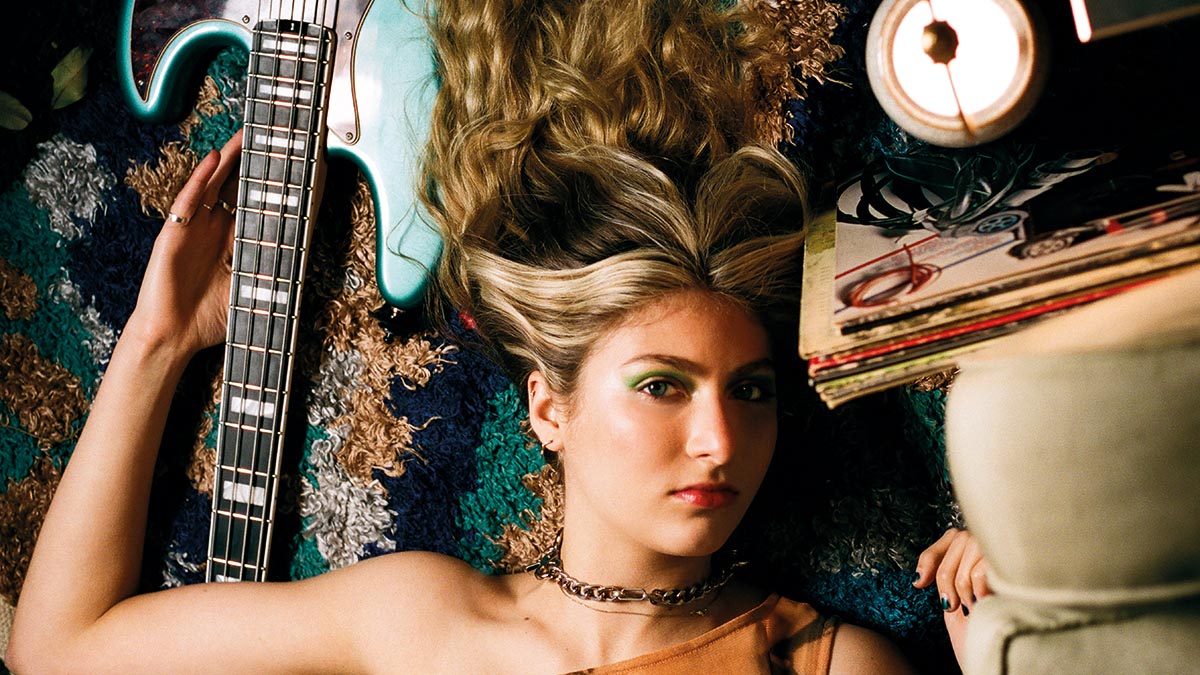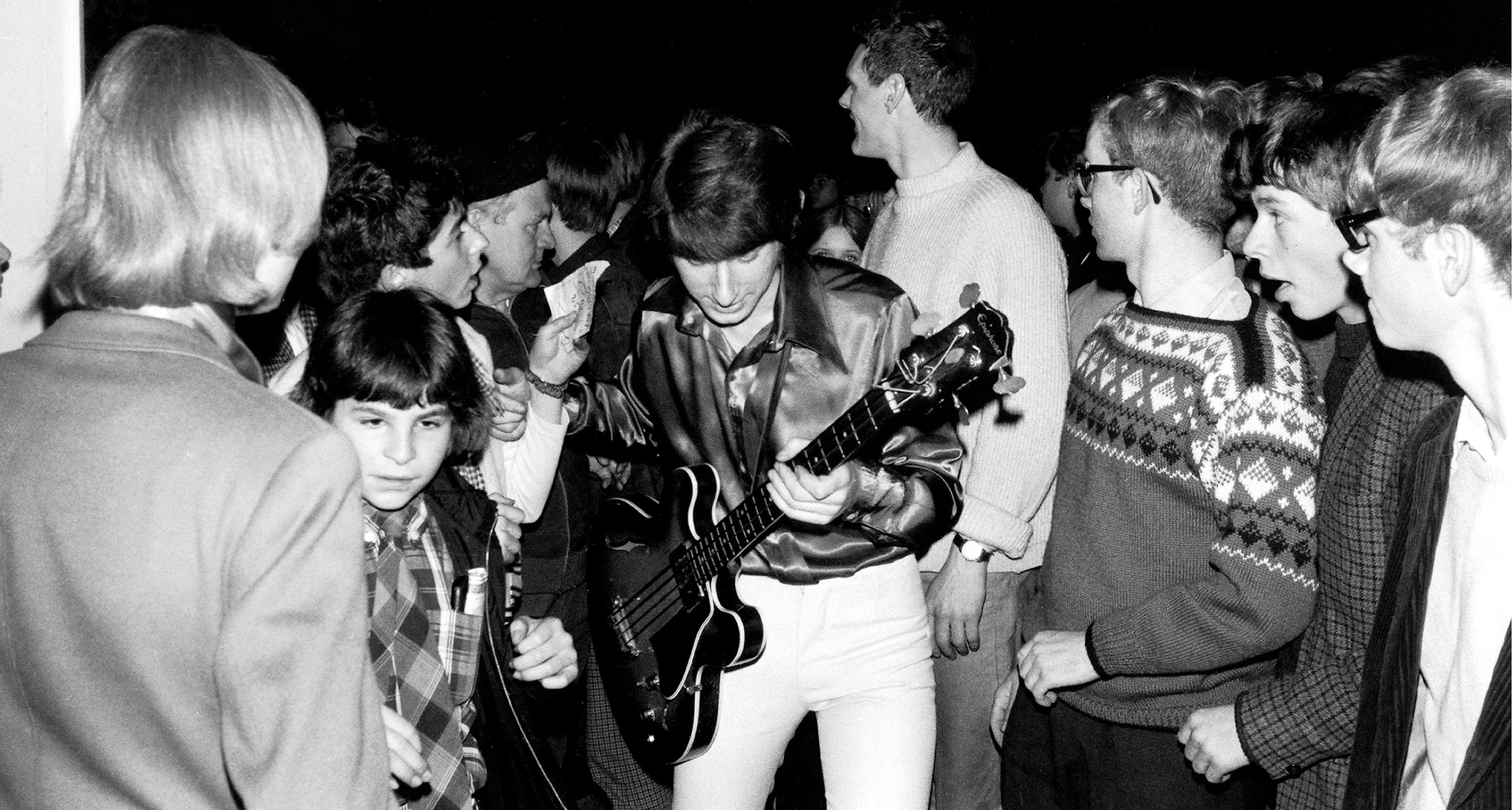Blu DeTiger: "I would bring my bass to my DJ sets and improvise over disco, house and funk records. People would go crazy"
The New York bassist, songwriter and DJ’s profile has gone stratospheric. We get the lowdown on her story so far

Welcome to Bass Player, Blu.
“Thank you. I’m a big fan, so it’s really cool to do this.“
You’re having a crazy year.
“Yeah, it’s been pretty crazy. I think it was part of the game plan, though. All the accomplishments the past year have definitely been goals of mine, but I just didn’t know or think that it would happen this fast. I hoped that all this stuff would happen eventually, but I never would have anticipated this accelerated growth.“
Have you got good people around you, supporting you through all this?
“Yeah, definitely. My family and my team. Everyone’s really good. I’m very, very careful with that.“
When did you start playing bass?
All the latest guitar news, interviews, lessons, reviews, deals and more, direct to your inbox!
“I started when I was seven. The bass was taller than me! I don’t even know how I was doing it; I could barely hold it.“
I was just like, ‘Oh, the guitar is too mainstream. I see so many people playing guitar. I don’t see many people, especially girls, playing the bass’
Did you start because you had a musical family?
“Yeah. My older brother was playing djembe and drums, and I was just like, ‘I want to play an instrument, too.’ Somehow I chose bass, and I don’t know what I was thinking because I was so young, but I was just like, ‘Oh, the guitar is too mainstream. I see so many people playing guitar. I don’t see many people, especially girls, playing the bass.’
“I wanted to be a little different, so I took lessons and jammed with my brother and got super-passionate about it at an early age. My parents never forced me to play or anything – they were just very encouraging and supportive.“
What music influenced you?
“Right when I started playing, I did this programme called School of Rock in New York. They have them all over the country: it’s this programme where you take lessons and you play covers at a concert. The first one I did was a Rolling Stones concert, and then I think the show I did after that was AC/DC, so I got super-into both of those bands.
“It was such an amazing way to learn music and get better on your instrument, because you’re really studying it and trying to replicate what these players were doing. Then I got into Van Halen and David Bowie and Prince, and I got into funk.“
It sounds like a good education.
“It really was. When you’re first starting out, it’s important to experience the fun part of it, and the joy part of it. A lot of people message me now, and they’re like, ‘I’m learning to play bass and I’m getting really frustrated and my fingers hurt.’
“I tell them to pick a song that they really like to listen to and learn it, so that they can connect to the fun of playing it. Then, when they go to do their scales and practice finger exercises, that part doesn’t seem as bad any more.“
When did you transition from studying bass to playing professionally?
“I kept learning songs, and studied all the genres. I got really into jazz in high school and got way better at improvisation. I really nerded out over theory, and found all these bass players that inspired me.
“While I was doing all of this, I was always playing in bands and taking a professional approach. I started getting known around New York: bands would hire me to play bass for their sessions or for their shows. I always said yes to every opportunity out there, and you know, one person sees you at a show, and they hire you for the next thing.
“What really helped was that I was DJing in New York a lot, and bringing my bass on my DJ sets, which is super-rare. No-one sees that, ever. I was just like, ‘Oh, this is sick. I really like DJing and I love playing bass. Why not combine them? It’s all music – it should work.’
“So I would bring my bass around to my DJ sets and improvise basslines over different disco and house and funk records. People would go crazy. For some reason it worked. Then I started getting touring gigs, and the bass covers that I played online got me a profile on social media.“
Clips for TikTok are so short that you have to get it all in there to show people what you can do
Why make the step to social media?
“It was the same approach – creating different basslines over a record; playing what I would play if someone like Cardi B said, ‘Yo, play bass on this record.’ I was just filming what I would play in that situation, but obviously a little bit exaggerated, because clips for TikTok are so short that you have to get it all in there to show people what you can do. I started very, very simply – just putting my phone up and playing along to popular songs. And then I started to get an audience.“
- How Did We Get Here? is out now.
Bass Player is the world’s most comprehensive, trusted and insightful bass publication for passionate bassists and active musicians of all ages. Whatever your ability, BP has the interviews, reviews and lessons that will make you a better bass player. We go behind the scenes with bass manufacturers, ask a stellar crew of bass players for their advice, and bring you insights into pretty much every style of bass playing that exists, from reggae to jazz to metal and beyond. The gear we review ranges from the affordable to the upmarket and we maximise the opportunity to evolve our playing with the best teachers on the planet.

